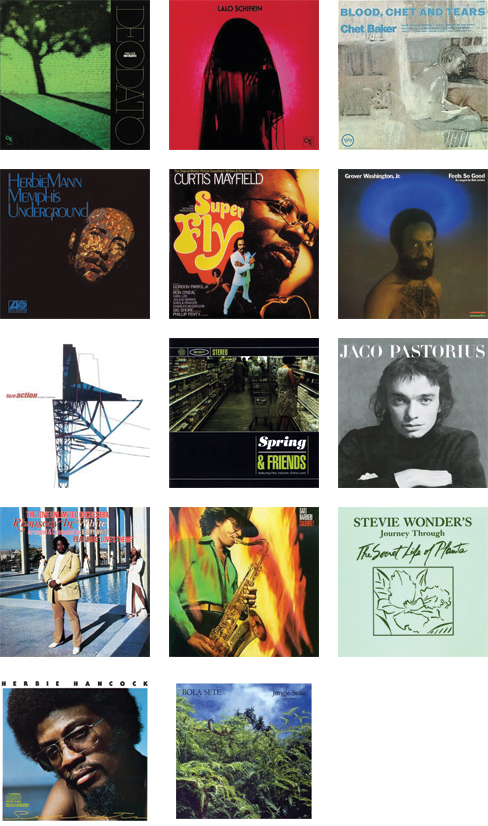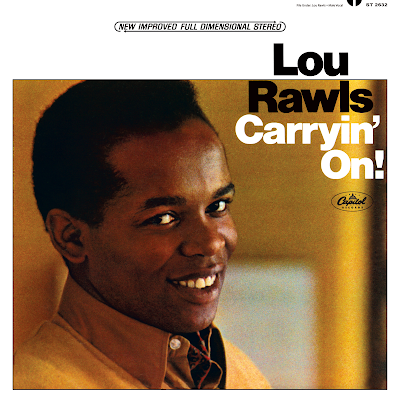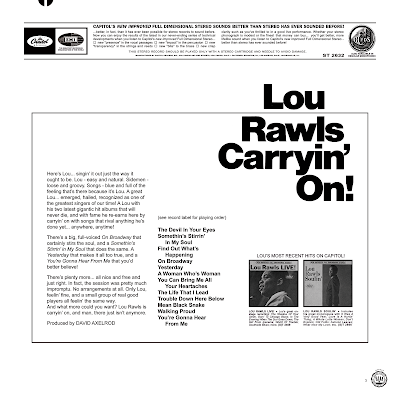
The Nosebleed's "Ain't Bin To No Music School" is the very first documented recording that include the participation of guitar maestro Vini Reilly, who shortly after will join The Durutti Column and later will become the main member of the band along with drummer and friend Bruce Mitchell. This blog is going to feature some Durutti rarities in the future, so I think that it makes sense to start from this little punk record.

The Nosebleeds formed in Wythenshawe, Manchester, England in 1976 under the name of Wild Ram. They changed their name to Ed Banger and The Nosebleeds in early 1977 with the following line-up: Edmund "Ed Banger" Garrity (vocals), Vincent "Vini" Reilly (guitar), Phillip "Toby" Tomanov (drums) and Pete Crooks (bass).


On July 25, 1977, the band released their one and only single: "Ain't Bin To No Music School". The record was available both with silver and blue labels, it is reported that 10.000 copies were pressed and sold in total. Althought uncredited, the cover picture was taken by famous Mancunian photographer Kevin Cummins. Here's the track list, both songs were written by Banger/Reilly:
01. Ain't Bin To No Music School (2:55)
02. Fascist Pigs (2:06)
Both tracks were remastered from vinyl in January 2012 and are available in FLAC lossless format or high-quality 320 Kbps MP3 files, both formats include complete original artwork. Please have a look at the comments for the download links.


The Nosebleeds performing live in 1977, picture by John Crumpton
Sadly The Nosebleeds didn't release any album: when Banger and Reilly left, Morrissey (...yes, him!) and Billy Duffy replaced them, but the band survived just for a limited time and no releases came out of that later lineup. Here's how Bristish journalist Peter Frame reconstructed the recruitment of Morrissey:
"Billy knew this guy Morrissey, who ran the New York Dolls Fan Club and wrote lyrics - and got him to join The Nosebleeds, although he had never sung before. The pair of them dumped all the group's old songs and wrote an entirely new set like "Peppermint Heaven" and "I Think I'm Ready For the Electric Chair". The audience was perplexed; it was a strange band!"

Morrissey, circa 1977-78

Before dissolving in late May of 1978, The Nosebleeds performed two concerts, one at the Ritz (supporting Magazine) and one at the Manchester Polytechnic for a Rabid Records benefit.
After the group split up Banger released a few solo singles and joined Slaughter and the Dogs during their period as Slaughter, Morrissey went on to form The Smiths, Toby appeared with Ludus, Blue Orchids and Primal Scream, and Pete Crooks joined up with Vini Reilly in the first incarnation of The Durutti Column under the "guide" of Tony Wilson.
The following is an excerpt from John Crumtpon's foreword to his own video documentary "The Rise and Fall of The Nosebleeds":
"Unfortunately the band weren't able to capitalise on their brief moment in the spotlight and their failure to make money created further tensions. Without success they carried on regardless but the splits within the group were ever widening. Ed Banger and Vini Faal, the manager, were the most forthright in voicing their opinions as to what had been happening with the group's finances. Spinal Tap was still to come. With the exception of Vini Reilly who lived in upmarket Didsbury, the rest were Wythenshawe born and bred and more used to settling matters in a John Prescott way. In fact when Ed turned up for his interview he was sporting a black eye, the result of a frank exchange of views with his manager and was more than willing to spill the beans. We cross-cut between this disillusioned Ed and the delusional Vini shouting the odds about each others shortcomings. Finally we see and hear Vinnie Faal, content to hold onto Toby and Pete and heralding a new venture with a new guy 'I've got my eye on' and the new Nosebleeds would rise again from the ashes. They did. I heard recently that Stephen Morrissey joined the band briefly as Ed's replacement only to be fired later, after Vini Reilly had left - the latter to be the most successful of the ex-Nosebleeds with his Durutti Column and solo albums - a guitarist touched by genius in my view."


Steve McGarry's poster for a gig at The Oaks in Chorlton,1977, signed by Ed Banger and Vini Reilly in 2005
Here's how Vini Reilly remembers the band's live attitude:
"I'd told the rest of the band that we'd be confrontationalists. So for example when we played the Roxy in London, which was THE venue to play, even though we had a full set of songs, I said 'No, we're just going to play two songs all night, that's it, and keep playing the same two songs and wind them up' which we did. The audience went absolutely beserk, and consequently we were asked to play again and again, because that was what was required. But I would also do things like sit with my back to the audience and play a very melodic guitar piece, which was what I'd always been doing all my life anyway, and the punks were totally confused by this, and baffled and maybe hostile, but at least it was a reaction, and I thought that was valid."

Anyway, it seems like their habits were not so appealing, here's what one Tim Lott wrote about the same Roxy concert:
Nosebleeds are no fun - Ed Banger and the Nosebleeds live at the Roxy
-------------------------------------------------------------------------------------------------
"MOVE YER f**king feet." Why bother? It's just an admission of defeat begging, screaming at the crowd to dance. It's dumb. If they don't dance it's because you're not good enough to make them want to. Ed Banger and The Nosebleeds, despite their gripping name aren't good enough. They barely raised a clap. They're are a pooonk band from up North and they don't really have the vaguest idea. Ed Banger looked like just an ever so slightly adapted computer operator and the Nosebleeds are far too Sweet. Nothing wrong with that of course, if The Goods were to manifest. They don't. Ed Banger tries hard to look and sing mean but ends up just another grunta demipunk sounding like he was dredged up from the end of last year sometime from the bottom of the pile. They had energy and once that was enough, when it had been missing from the scene so long. Now every band gets let off with the excuse they were 'energetic'. That let out isn't enough for Ed Banger and the Nosebleeds. They were boring. If you're interested they have a single out on Rabid Records which is quite unlikely to have you foaming at the mouth. They did 'Jumpin Jack Flash' as well. You know, I reckon they were hippies with their hair cut off. But then, aren't they all."


Poster for a gig at the Ritz in Manchester, 1978
The new lineup encountered the favour of Paul Morley, the following short feature is taken from the 3 June, 1978 issue of the New Musical Express:
"The Nosebleeds have also noticeably metamorphosed, though probably due more to personnel changes than anything else. Last year they were the entirely forgettable Ed Banger and The Nosebleeds (who 'created' the dirge-like single "Ain't Bin To No Music School" for Rabid Records); now Banger has gone his own so-called eccentric way. The Nosebleeds re-surface boasting A Front Man With Charisma, always an advantage. Lead singer is now minor local legend Steve Morrisson, who, in his own way, is at least aware that rock'n'roll is about magic, and inspiration. So The Nosebleeds are now a more obvious rock'n'roll group than they've ever been. Only their name can prevent them being this year's surprise."

A live bootleg recording of The Nosebleeds seems to be available online at Retro Records, it includes songs like "Ain’t Bin To No Music School", "Fascist Pigs", "Middle Class Suburban Creep", "Blackpool Rock" and others. According to the information I gathered this should be the first incarnation of the band, with Ed Bangers on vocals and Vini Reilly on guitar.
The following video shows the band playing live on TV in 1977. Some sources mention this as being part of the "So It Goes" series hosted by Tony Wilson but I'm inclined to think that the programme was "Granada Report". Anyway, Tony appears several times in the video and we can see him receiving the warm attentions of Ed Banger... Horrible quality, but what a find!

More information about The Nosebleeds, Ed Banger and the Manchester Punk scene is available here:
http://www.dorsetmusicguide.com/toby-toman-interview/
http://en.wikipedia.org/wiki/Ed_Banger_and_the_Nosebleeds
http://www.punk77.co.uk/groups/nosebleeds.htm
http://www.punk77.co.uk/groups/nosebleeds2.htm
http://www.punk77.co.uk/groups/nosebleedsinterview.htm
http://punkygibbon.co.uk/bands/n/nosebleeds.html
http://www.johncrumpton.co.uk/page15.htm
http://www.youtube.com/watch?v=iGsU2s7Yj1w
http://www.edbanger.net/
http://punkrocker.org.uk/punkscene/manchester77.html
http://punkrocker.org.uk/punkscene/manchester77b.html

If you have any other useful information concerning this post - or if you spot any dead links - please get in touch with me at stereocandies [at] hotmail [dot] com or leave a comment in the box below, thank you!













